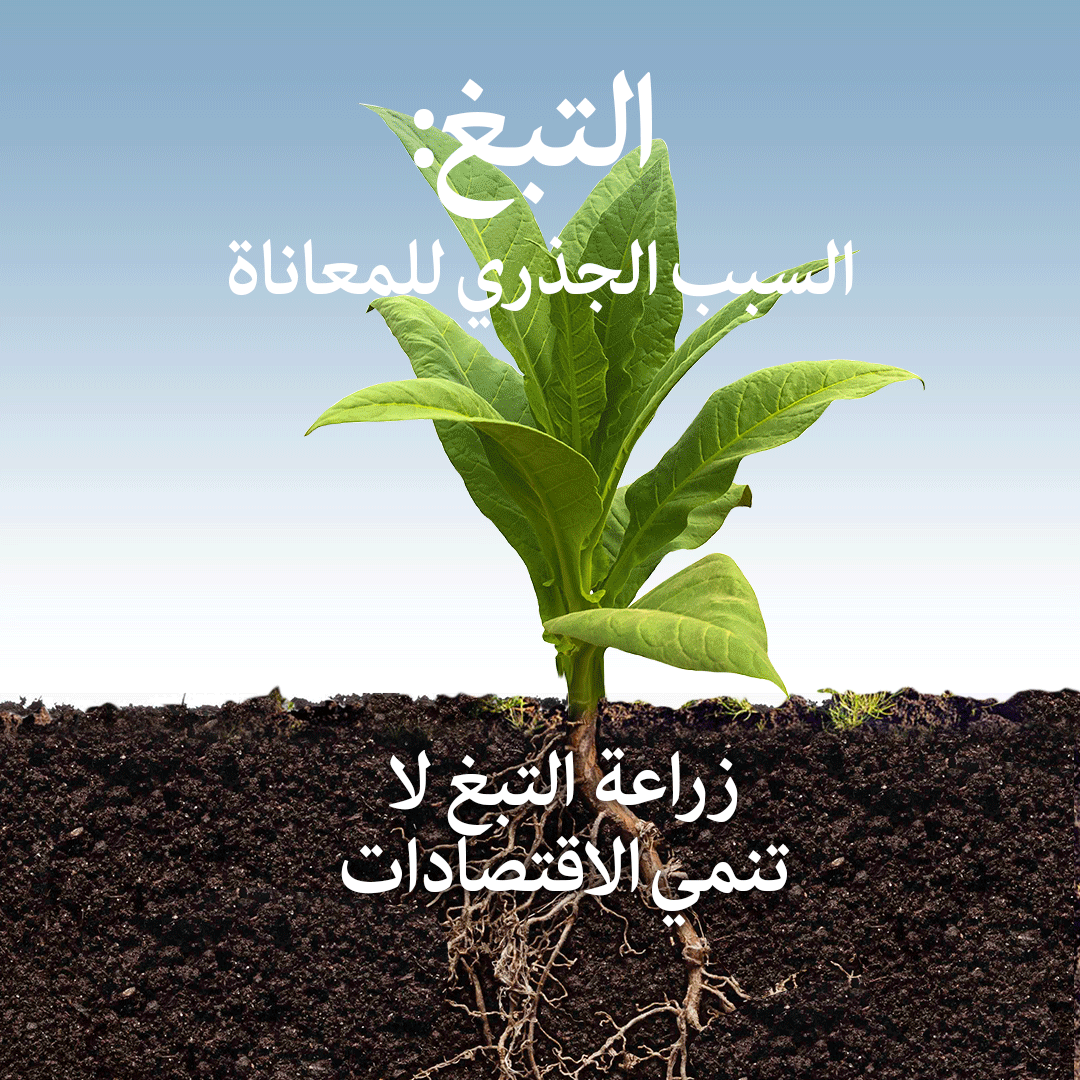 31 May 2023 – Damascus, Syria – Countries around the world, including Syria, are observing World No Tobacco Day, with a focus on the call for food, not tobacco. Syria's tobacco control program, led by the Ministry of Health in collaboration with the World Health Organization, aims to reduce the effects of tobacco cultivation on government and public health.
31 May 2023 – Damascus, Syria – Countries around the world, including Syria, are observing World No Tobacco Day, with a focus on the call for food, not tobacco. Syria's tobacco control program, led by the Ministry of Health in collaboration with the World Health Organization, aims to reduce the effects of tobacco cultivation on government and public health.
"Interference from the tobacco industry makes it harder to transition away from tobacco cultivation, exacerbating the global food crisis," said Dr. Iman Shankiti, WHO Representative a.i in Syria. "We urge governments to stop subsidizing tobacco cultivation and redirect those funds to assist farmers in adopting more sustainable crops that enhance food security and nutrition. Through collaboration, we can ensure our communities enjoy better health, nutrition, and sustainable food."
In recent years, Syria has made remarkable progress in tobacco control. A total of 24 tobacco cessation clinics have been established across 14 government-owned facilities, providing consultations to approximately 3,000 visitors in 2020 and 2021. Additionally, The Tobacco Control Program has trained 50 healthcare professionals from two public hospitals in Damascus and rural Damascus on tobacco cessation programs. Two central coordination meetings were held to assess national progress on Tobacco FCTC policies, involving 60 Ministry of Health staff members, tobacco coordinators, and the Tobacco Control National Committee.
Syria's Tobacco Control Program is actively working to eliminate the illicit trade of tobacco products and endorse sustainable crop substitution. In 2022, the WHO assisted in the development of the National Tobacco Control Action Plan for 2021-2023 and facilitated a dialogue with the Eastern Mediterranean Regional Office of WHO (EMRO) about "Syria Next Steps." This dialogue aims to join the Protocol to Eliminate Illicit Trade in Tobacco Products, an international treaty with the goal of eliminating all forms of illicit tobacco trade through a set of measures that countries can adopt as a global solution to a global problem. Furthermore, the WHO worked with the Ministry of Health to conduct a two-day training workshop on implementing the WHO Framework Convention on Tobacco Control (FCTC) for parties navigating complex emergency situations.
In schools, universities, and households, the Ministry of Health has launched smoke-free initiatives with support from the WHO to raise awareness and provide educational materials. As part of the 2023 theme, the Tobacco Control Program seeks to highlight the extensive negative impact of tobacco product waste on the environment, economy, society, human health, biodiversity, and water bodies.
WHO supports a smoke-free future and a world where food is grown for nourishment rather than consumption. This approach will ultimately result in stronger communities. By backing the Tobacco Control Program of Syria in promoting sustainable food production, reduces the harmful effects of tobacco farming on health and the environment.


